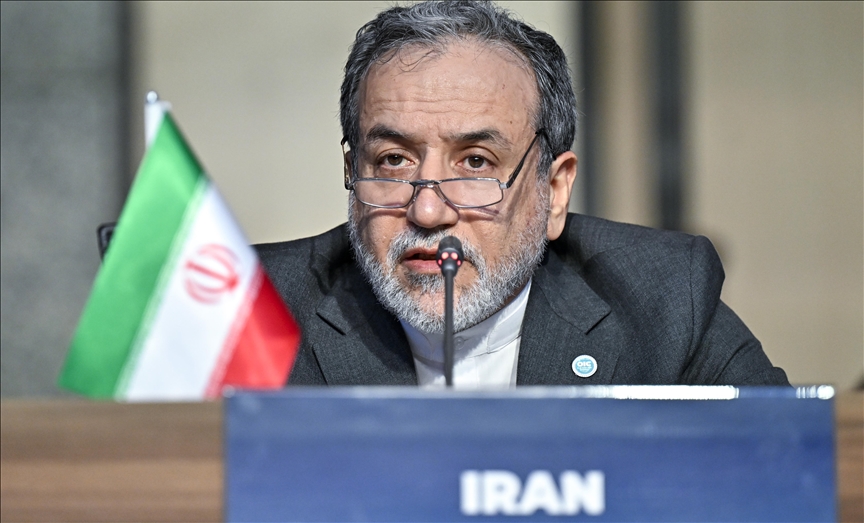Iran warns Europe of ‘grave mistake,’ unveils proposal for ‘lasting nuclear bargain’
Iran’s foreign minister says Tehran ready for strict oversight, enrichment curbs in exchange for sanctions relief
 Iranian Foreign Minister Abbas Araghchi
Iranian Foreign Minister Abbas Araghchi
ISTANBUL
Iran’s foreign minister warned Sunday that Britain, France and Germany had made a “grave miscalculation” by triggering the snapback mechanism to reimpose United Nations sanctions on Tehran, saying the move lacked legal basis and would further erode Europe’s global credibility.
In an opinion piece published in The Guardian, Abbas Araghchi wrote that the European trio, known as the E3, was “enabling the excesses of Washington” by following US President Donald Trump’s strategy, which he said derailed the 2015 nuclear deal.
He argued that it was the US, not Iran, that abandoned the agreement, formally known as the Joint Comprehensive Plan of Action (JCPOA), in 2018, while Europe failed to deliver on its pledges to sustain trade and normalize economic ties with Tehran.
Britain, France and Germany announced last month they had triggered the snapback mechanism under UN Security Council Resolution 2231, which automatically restores sanctions unless the Council decides otherwise within 30 days.
Iran suspended cooperation with the UN nuclear watchdog following US and Israeli attacks on the country, accusing the IAEA of bias against Tehran.
‘Nuclear bargain’
Araghchi unveiled what he called a “realistic and lasting bargain,” under which Iran would accept ironclad oversight and curbs on enrichment in exchange for the lifting of sanctions.
He cautioned that failure to seize this opportunity “may have destructive consequences for the region and beyond on a whole new level,” urging Europe to give diplomacy “the time and space it needs to succeed.”
“While failing to uphold its own obligations, Europe has expected Iran to unilaterally accept all restrictions,” he said, adding that the E3 “declined to condemn the US attack on my country in June – on the eve of diplomatic talks – and yet are now demanding UN sanctions on Iranians for supposedly rejecting dialogue.”
The minister also lashed out at Israel, accusing it of dragging Washington into reckless wars. He said Iran’s armed forces were “ready and able to once again pummel Israel into running to ‘daddy’ to be bailed out,” adding that Tel Aviv’s failed military campaign in June cost American taxpayers billions and left the US short of vital defense equipment.
Iran was engaged in Oman-mediated nuclear negotiations with the US when Israel launched a surprise attack on Tehran on June 13, targeting military, nuclear, and civilian sites as well as senior military commanders and nuclear scientists.
Tehran launched retaliatory missile and drone strikes, while the US bombed three Iranian nuclear sites. The 12-day conflict came to a halt under a US-sponsored ceasefire that took effect on June 24.








